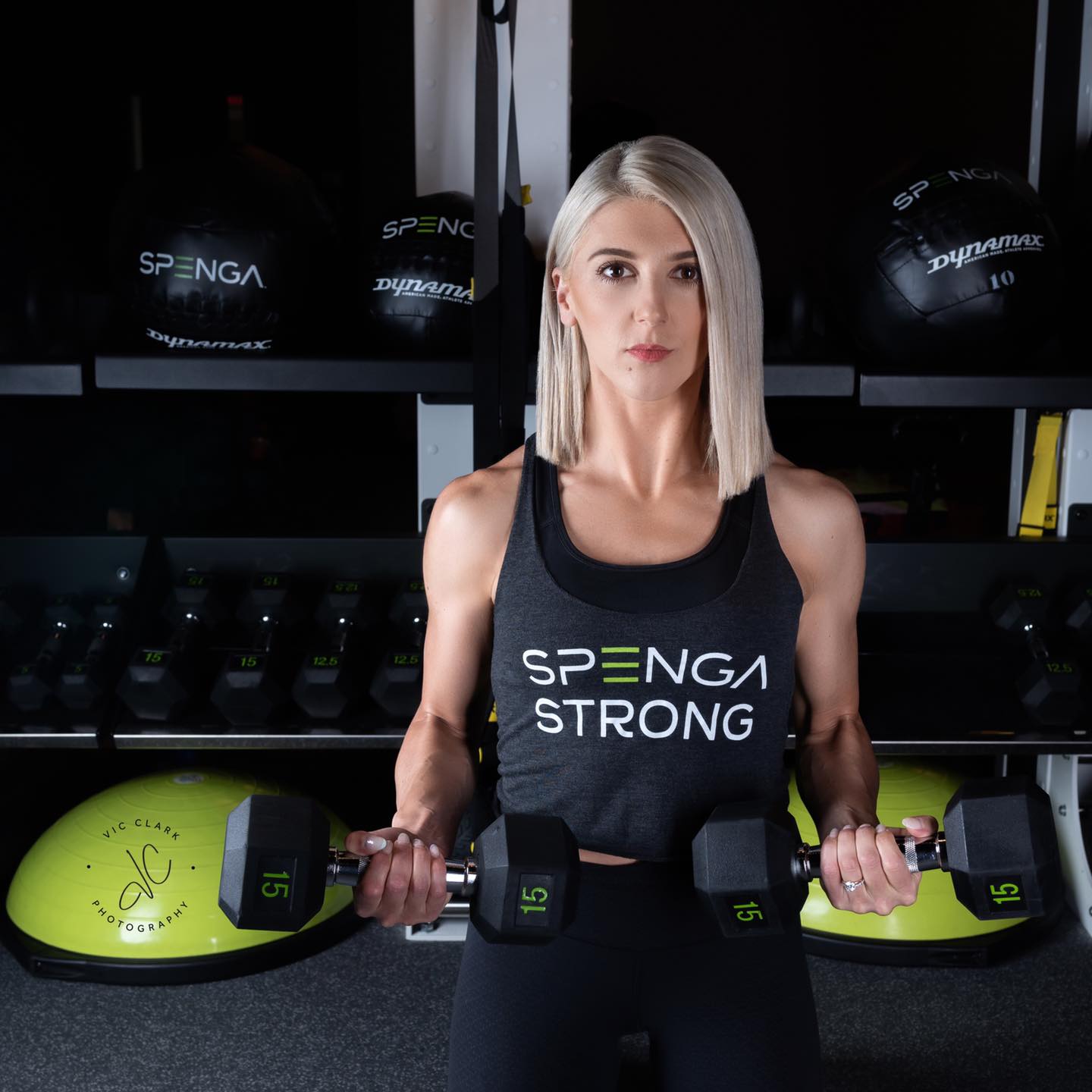written by SPENGA Houston Montrose

What’s better, dumbbell or barbell work? This is an age-old question. Normally people ask about fitness and nutrition on a daily basis. But if the topic involves equipment, I know it will be 'D vs B'. I was doing some reading the other day and came across an article in Men’s Journal that brought the topic into my periphery. Then, as if it was a message from the workout Gods, a SPENGA Montrose member randomly posed the question again to me the next day.
My answer: That depends. What’s your goal? What are you looking to achieve?
Both dumbbells and barbells are great. We just need to pick the right tool for the job. The first step in designing effective programming for someone is to have them identify realistic, achievable and sustainable goals. If you could just snap your fingers and walk around the rest of your life looking like a Greek God, every client would be snappin’ away. However, when it comes to what you’re willing to do to improve your physicality, most people aren’t interested to put in that much effort or don’t have the time to create that physique. They do want to look good and feel good. Clients want functional strength, flexibility, and enough energy to keep up with the pack.
Dumbbell or Barbell, which is best for YOU?
Barbells are great for developing dense, thick mass. A barbell is the perfect tool for creating upper limit maximal strength. Most of the time, when you use a barbell, you’ll hold it with both hands, this allows you to stabilize the weight you’re lifting to a great degree, and that makes it easier to lift heavy, providing maximum overload to your muscles. Big muscles require big weight. Take a bench press for example, all world record lifts are recorded with a Barbell. When you’re bragging to your training partners about your one-rep max bench press, you’re telling them how much you’ve pressed with that barbell across your chest. No one seems to care about how much you can dumbbell bench press. Let’s say your 1 RM with a barbell is 400 pounds. I highly doubt you would be able to successfully do that same 1 RM with two 200 pound dumbbells. The more stable the load, the more control you have over it, and the more weight you can add.
That theory holds true for all Barbell lifts; Bench Press, Squats, Deadlifts, Bent Over Rows, etc.
The dumbbell brings a different result to the lifter. They have been around in one form or another since the beginning of weight training, as far back as 700 B.C.. The original version looks something like a heavy rock. In the 1700s, church bells began being used for exercise. To silence them, the clappers were removed, and so the name “dumb” bell was born. Dumbbells allow for greater range of motion and freedom of movement that you can’t get when both hands are locked onto a Barbell. Dumbbells require lots of stabilizing muscles to control them. Dumbbells are fantastic at identifying muscle imbalance from one side to another such as the left bicep vs the right bicep. Dumbbells accommodate countless isolation (single-joint) movements including chest fly’s, lateral raises for the delts, and triceps kickbacks. ROM and freedom of movement can also be huge for helping you build more muscle, as compared to barbell exercises. There is a huge ROI to performing isolation movements with Dumbbells as they can hit
muscles in a way that a barbell cannot. Dumbbells are great for providing functional fitness, strength, increasing endurance and joint health. Like how many grocery bags you can carry into the house at one time or how quickly you can spring to your feet and chase your toddler before they do something they shouldn’t.
Both dumbbells and barbells are great tools. You just need to pick the tool that will serve you best. Maybe you couldn’t care less about upper limit maximal strength. Maybe you have no desire to rank high on the leaderboard with Olympic power lifts. You have a career, you have a family, and you have limited time because you want to enjoy your life. After spending most of my adult life as a bodybuilder, I realized one day that I was incredibly strong, but I couldn’t scratch my back or even take off a T-Shirt without assistance. I had so much muscle mass and strength, but none of it was functional for daily life. When I opened SPENGA Montrose in Houston, Texas that changed everything for me.
Our Approach
At SPENGA Montrose we focus on isolation movements during HIIT training and use Dumbbells as our primary strength training option, next to TRX straps and kettlebells. SPENGA focuses on all aspects of physical development; What you lift, how you lift it, and how long you can lift it for.

